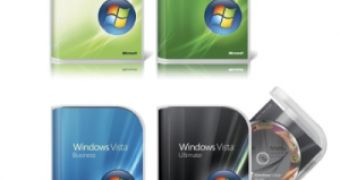Long before Microsoft announced that Windows Vista made a splash in its debut month selling in excess of 20 million licenses worldwide, the operating system was crucified for three sins. DRM, Virtualization and support issues. 20 million sold Vista licenses should be sufficient to silence criticism, but the truth of the matter is that customer perception has a constant momentum.
The introduction of Digital Rights Management in Windows Vista is without a doubt the flagship example of Vista features and shortcomings that have come under fire. Ignoring the simple fact that DRM applies exclusively to copyrighted content, and to nothing else in Windows Vista, even in scenarios where protected and unprotected materials are running side by side, the operating system became either the tool of RIAA or a Microsoft plot to control licenses.
To understand the role of DRM in Windows Vista you have to look at the big picture. Microsoft's vision of a household involves interoperability between Windows Vista, Windows Home Server and the Xbox console.
Windows Vista was also blamed for the Virtualization limitations introduced in the EULA. Microsoft is only supporting Windows Vista Business, Enterprise and Ultimate as both the guest and host operating system. Windows Vista Home Basic and Home Premium are not supported at this time due to security considerations. Still, Microsoft will add support for all editions of Windows Vista with Virtual PC 2007.
The third issue that plagued Windows Vista's initial month of general availability is driver support. This is a simple case of ignorance. You cannot blame Windows Vista or Microsoft because the developer of your hardware or software failed to add support for the operating system.

 14 DAY TRIAL //
14 DAY TRIAL //